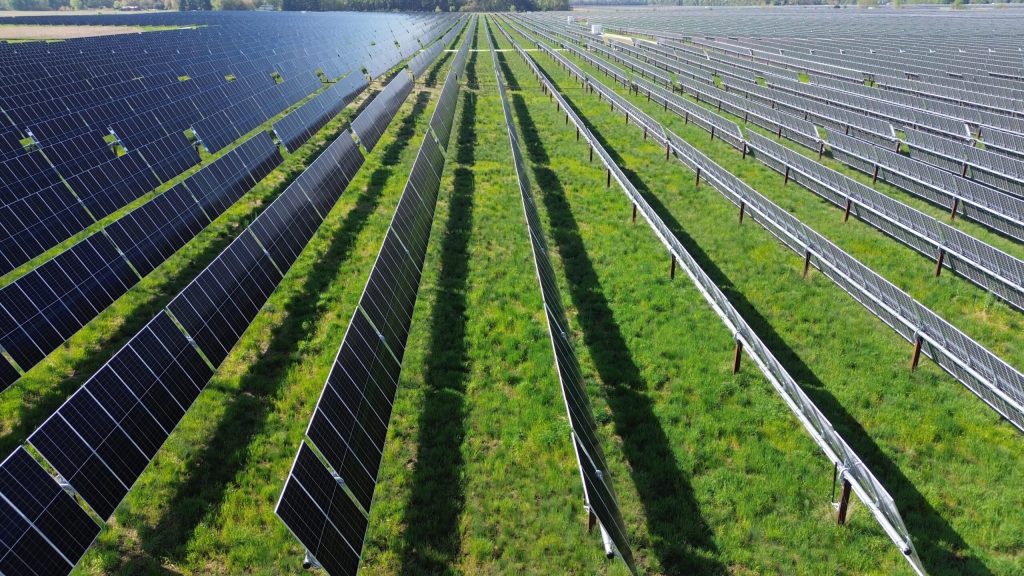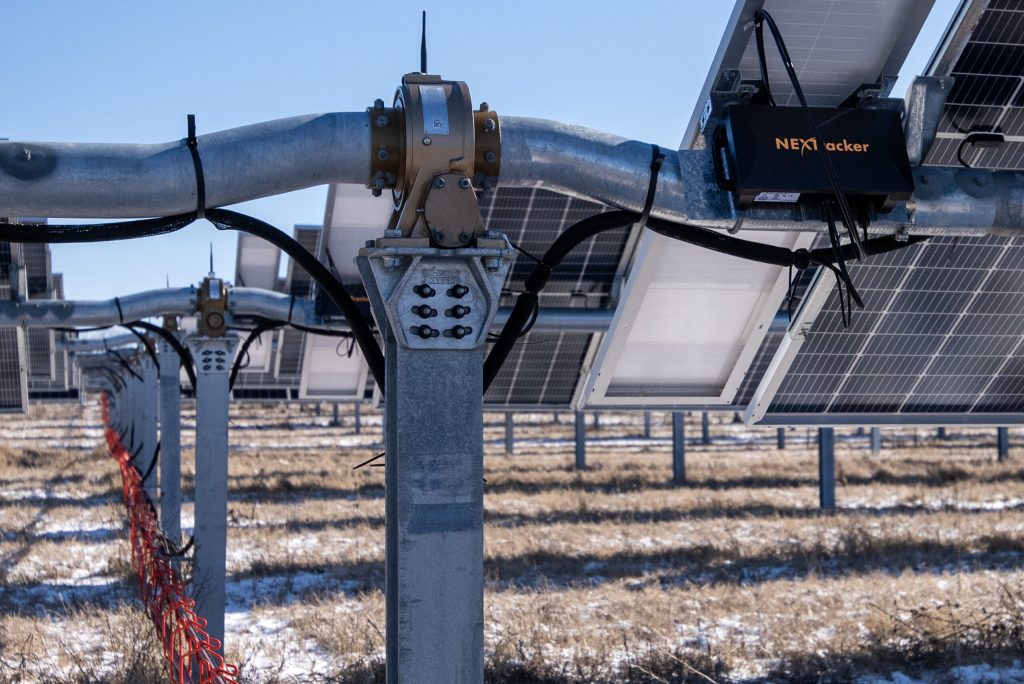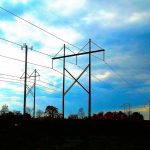Trump Tariffs Hiking Costs, Limiting Options for Wisconsin Solar
High tariffs could make some projects in state 'economically unfeasible.'

Doral Renewables is building the Mammoth Solar project is seen here in May 2024. The project is similar to the Vista Sands Solar project that’s been proposed in Portage County. Photo courtesy of Doral Renewables
A slew of tariffs from the Trump administration is expected to make it more expensive for Wisconsin homes, businesses and utilities to invest in solar energy systems.
President Donald Trump has slapped 145 percent tariffs on China, which accounts for an estimated roughly 80 percent of the world’s solar manufacturing capacity. Trump also implemented 25 percent tariffs on all steel and aluminum imports.
A tariff is a tax on goods imposed by the country that imports them. American companies importing products from abroad pay the cost and typically pass those costs on to their customers.
Some solar companies have price hikes planned for later this month in response to Trump’s tariffs, according to price increase letters posted online by ABC Supply Co., a Beloit-based roofing supply company that was founded by Republican mega donor Diane Hendricks.
A New Mexico-based solar equipment supplier told customers it planned to raise system prices between 5 and 18 percent effective May 12 with some prices remaining unchanged. Meanwhile, the North American arm of a Chinese-based solar inverter manufacturer told customers it planned to raise prices on all orders involving Chinese imports by 20 percent effective May 6.
In Wisconsin, 11 large-scale solar projects are either under construction or about to start construction, and eight projects awaiting approval from state regulators, according to the state Public Service Commission. Those numbers do not include rooftop solar projects for homes and businesses.
A spokesperson for the PSC declined to comment on how tariffs could affect solar in Wisconsin. But the spokesperson said via email developers can revoke applications for projects and have done so in the past for varying reasons.
The spokesperson also said developers or utilities could opt to abandon a project after it’s been approved by regulators, pointing to the cancellation of a 200-megawatt solar project in Fond du Lac and Winnebago counties as an example.
“They no longer ink out,” he said. “The return on investment is not a 10-year return on investment, it becomes a 30-, 40-, 50-year return on investment.”
The tariffs on steel and aluminum raise the costs of the metal racking used to mount solar panels, while the duties on China and the planned targeted solar tariffs would increase the costs of panels themselves, Chartier said.
He also said bigger companies can stock up on materials before tariffs hit, but small businesses can’t.
“If you’re a mom-and-pop shop — that’s a small utility, a small-scale rooftop installer — and you’re buying things as the jobs come along, you won’t be in business very long,” Chartier said. “The prices will be so high you can’t compete with the people who bought before.”

A device connected to the solar panels allows for them to follow the path of the sun Friday, Jan. 24, 2025, in Union Grove, Wis. Angela Major/WPR
State’s largest utility says domestic solar manufacturing currently ‘limited’
Dan Krueger is the executive vice president of infrastructure and generation planning for WEC Energy Group, the parent company of We Energies and Wisconsin Public Service. He said the company’s current solar projects are “in good shape” because the company procured materials “quite some time ago.”
Krueger said there have been new American solar factories popping up, but all solar cells in panels use a specific type of silicon, the vast majority of which is processed in China. He said it isn’t yet clear “how far up that supply chain” the U.S. can eventually get.
“We have shifted as much of our business as possible to U.S. factories and non-Chinese elements, but it is limited,” he said.
In a statement, a spokesperson for Alliant Energy said the utility is monitoring the potential impact of tariffs on “all of our energy projects” and is working with stakeholders to “mitigate them, as much as possible.”
Solar construction firm: Tariffs limit options for customers, threaten relationships
Arch Solar is a Plymouth-based solar construction company that works on projects of all sizes from rooftop solar for homes and businesses to utility-scale solar.
Whenever the company gives a proposal to a client, Arch Solar spokesperson JD Smith says they try to give them multiple options but the tariffs make that difficult.
“Now our options are being significantly limited,” he said. “Rather than bringing four or five options to the table, we’re really focusing on: what can we guarantee is going to do the job? And oftentimes that means telling the customers, ‘Hey, this may not be the right fit right now.’”
For example, the company worked with a Canadian firm to install the steel mounting system for solar panels on Wauwatosa City Hall, Smith said. That Canadian partner provided engineering help in addition to the metal racking.
“Now, that tool in our toolbox may be impacted,” Smith said. “It’s not that it necessarily hits the panels itself, or it hits solar in general. It’s more that it limits our options enormously — and that goes for the steel we use to rack it [and] the different types of panels.”
Smith said the company has warehouses stocked with components to complete existing projects and then some, which gives it some cushion in the immediate term.
“We’re operating business as usual right now, but we don’t even know what the next two years are going to look like,” he said. “My concern, as we move through this format of tariffs, is how long are we able to communicate and be positioned well for our customers?”
“I expect that just by virtue of our size and longevity, we’ll be able to ride out at least the next few years,” Smith added. “But it’s going to be a long time before we have the same relationship with U.S.-based manufacturers of solar equipment that we do with our current global partners.”
Editor’s note: WPR’s Danielle Kaeding contributed to this story.
Trump tariffs expected to increase costs, limit options for Wisconsin solar was originally published by Wisconsin Public Radio.
If you think stories like this are important, become a member of Urban Milwaukee and help support real, independent journalism. Plus you get some cool added benefits.





















